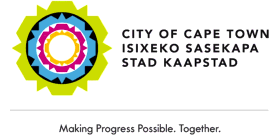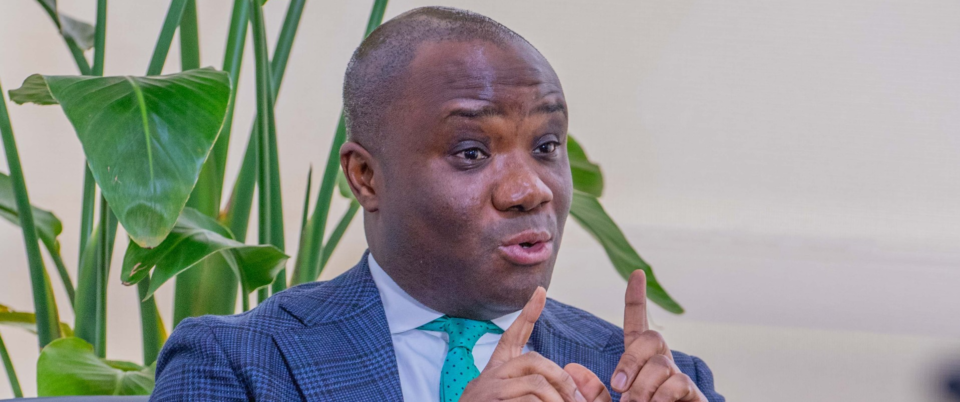Ghana's New Chief Justice Vows Judicial Independence Amidst Mahama's Pledge
&format=jpeg)
Justice Paul Baffoe-Bonnie was officially sworn into office as Ghana's Chief Justice by President John Dramani Mahama on Monday, November 17, 2025, at a ceremony held at the Jubilee House. His appointment, made in accordance with Article 144(1) of the 1992 Constitution and confirmed by Parliament, fills the vacancy created by the removal of former Chief Justice Gertrude Araba Esaaba Torkonoo. Justice Baffoe-Bonnie, who had been serving as Acting Chief Justice since April, formally took the Oath of Allegiance, Judicial Oath, and Oath of Secrecy, after which he received the instrument of appointment. The ceremony was attended by high-ranking dignitaries including the Vice President, members of the Council of State, the Attorney-General, leadership of Parliament, and Supreme Court Justices.
In his address, President Mahama reaffirmed his unwavering commitment to judicial independence, stating that it is a constitutional necessity—not a privilege—and is crucial to Ghana’s democratic strength. He emphasized the delicate balance of powers among the executive, legislature, and judiciary, noting that each branch must operate independently while collaborating for the common good. The President urged Justice Baffoe-Bonnie to prioritize strengthening integrity within the judiciary, including enforcing firm but fair disciplinary standards for judges and staff, establishing transparent and predictable procedures for case assignment and management, and creating strong internal mechanisms to address allegations of misconduct. He stressed that citizens must believe that justice in Ghana is not for sale and that no one, regardless of power or status, is above the law. President Mahama also pledged his government’s commitment to adequately resource the judiciary to implement modern reforms and strengthen institutional capacity.
Accepting the mantle of leadership, Justice Baffoe-Bonnie pledged to uphold the rule of law, respect the separation of powers, and protect the Constitution. He outlined his vision for a service-oriented judiciary that is efficient, transparent, and respectful of all persons. He emphasized that judges and staff must uphold the highest ethical standards, treat litigants with dignity, and apply the law without fear or favor, serving the cause of justice, not political interests. He envisioned a Ghana where justice is neither delayed nor denied, and where cost, distance, and complexity no longer hinder fairness. In this vision, judges are independent yet humble, fearless yet fair, learned yet compassionate. The Chief Justice also pledged to support improvements in court infrastructure, continuous training for judges and staff, deployment of information and communication technologies for enhanced case management, and increased public outreach. He stressed that independence must be coupled with accountability to restore public confidence, insisting that judges and court staff act ethically and understand that their positions are a public service, not a privilege. Justice Baffoe-Bonnie called on all stakeholders, lawyers, litigants, civil society, and the public, to collaborate in building a judiciary worthy of national trust.
Addressing the critical area of legal education, the Chief Justice described reform as unavoidable. He articulated a vision to move the system from exclusion to inclusion, rote learning to critical thinking, and credentialism to competence. He stated that the judiciary would work with the General Legal Council, the Ghana School of Law, and law faculties to pursue a model that expands opportunity without compromising quality, aiming to produce not only more lawyers, but better lawyers, disciplined, ethical, and devoted to justice.
Justice Baffoe-Bonnie’s rise to Chief Justice marks the culmination of a distinguished career defined by service and scholarship. Educated at the University of Ghana School of Law and holding a Master of Laws (LL.M.) in Constitutional Theory from Oxford University, he has built a reputation as a scholar and fearless jurist. His judicial journey includes appointments to the High Court in 1993, the Court of Appeal in 2005, and the Supreme Court in 2012. He is widely recognized for his expertise in Constitutional Law and Human Rights Jurisprudence, having authored 87 majority opinions on the Supreme Court, many focusing on land ownership disputes and electoral petitions. His appointment is expected to bring a stabilizing influence to the judiciary, offering steady leadership rooted in decades of practical experience and deep legal scholarship, as the nation looks to him to drive essential reforms for timely and accessible justice for all citizens.
You may also like...
Boxing Titans Collide Again: Mayweather vs. Pacquiao Rematch Buzz

Boxing legends Floyd Mayweather Jr. and Manny Pacquiao are set for a highly anticipated rematch on September 19 at the S...
UCL Drama: Juventus Star's Bold Promise After 'Tragic' Osimhen Error

Juventus faces a tough challenge in the Champions League second leg against Galatasaray after a 5-2 first-leg loss. Defe...
Sundance Shake-Up: Prestigious Film Festival Unveils New 2027 Dates and Boulder Debut

The Sundance Film Festival is relocating to Boulder, Colorado, for its 2027 edition, scheduled from January 21-31. This ...
BAFTA Under Fire: Major Awards Body Launches Review After Damaging N-Word Incident

BAFTA has responded to the N-word controversy at its recent Film Awards, involving Tourette's syndrome activist John Dav...
Shocking Cancellation: 2026 La Onda Festival Scrapped After Lineup Reveal

The 2026 La Onda Festival in Napa, California, has been unexpectedly canceled just weeks after announcing a star-studded...
Star-Studded Showcase: Kravitz, Maroon 5, Ozuna & Yandel Lead 2026 Starlite Occident Marbella

The Starlite Occident Marbella festival has unveiled its initial 2026 lineup, featuring headliners like Lenny Kravitz, M...
Cape Town's Kirstenbosch Garden Blooms onto World's Most Beautiful List!

Cape Town's Kirstenbosch National Botanical Garden has been globally recognized by Homes & Gardens as one of the Most Be...
Mozambique's National Carrier LAM Soars Towards Revival with Ethiopian Airlines Power

Mozambique's government is in discussions with Ethiopian Airlines to restructure its national carrier, LAM, focusing on ...



